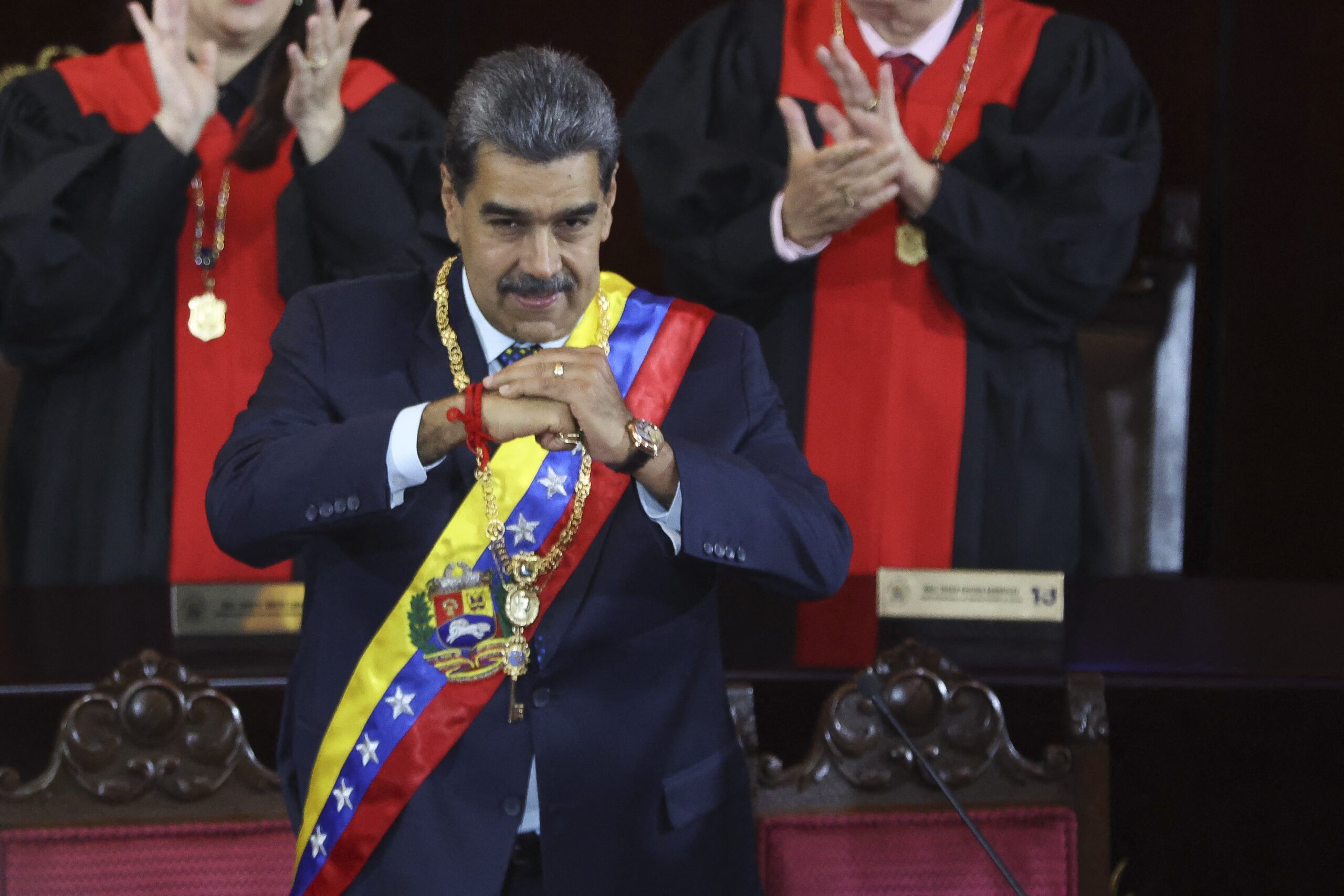- October 27, 2025
Trump’s Venezuelan policy: Will it be ‘Madurism without Maduro’?

President Trump’s admission that he’s ordered covert CIA operations in Venezuela, along with reports that he’s seeking to topple dictator Nicolás Maduro, has sparked joy in pro-democracy circles. But hold the celebratory cerveza: Trump might be perfectly happy with a “Madurism without Maduro” outcome that kicks out the strongman but doesn’t usher in a true democracy.
Trump has already deployed 10,000 troops and more than eight warships to Caribbean waters near Venezuela. This U.S. force has sunk several alleged drug-smuggling boats, killing at least 27 suspected drug traffickers. Now, Trump says he’s considering strikes on Venezuelan soil.
U.S. officials privately admit Trump isn’t just looking to curb drug trafficking and illegal migration anymore but is now also pursuing Maduro’s ouster. They say Trump has decided that Maduro cannot be trusted for any negotiation and simply must go.
But don’t expect a repeat of the 1989 U.S. invasion of Panama that removed Gen. Manuel Antonio Noriega. Military experts tell me an invasion of Venezuela would demand up to 250,000 U.S. troops — almost 10 times the U.S. force that invaded Panama, where many soldiers were already stationed on U.S. military bases.
That’s because Maduro’s army is much bigger than Noriega’s, and Venezuela’s territory is 12 times larger than Panama’s.
Plus, Trump has always been a fierce critic of U.S. military interventions abroad. His “America first” mantra opposes fighting “foreign wars.” He opposed the U.S. invasion of Afghanistan. More recently, he launched an air attack against Iran’s uranium enrichment facility at Fordow without putting boots on the ground, showing a clear aversion to putting U.S. lives at risk.
So what is Trump likely to do? One scenario, although not the most likely, is a U.S. air strike targeting a top Venezuelan general accused of drug trafficking, much like the 2020 U.S. drone attack that killed Iranian Gen. Qasem Soleimani.
But military experts tell me that would be very difficult. Remember: Soleimani was not killed by a U.S. drone in Iran, but during a visit to Iraq. Iran — much like Venezuela — has air defenses against drones. It would be hard to get a U.S. drone into a big Venezuelan city.
Alternatively, Trump could launch a Tomahawk missile from one of the U.S. warships in the Caribbean, aimed at a top Venezuelan figure. But those missiles aren’t nearly as precise as drones and could cause many civilian casualties.
The more likely scenario? Trump orders a limited air attack in a remote Venezuelan area, perhaps targeting a base of the National Liberation Army (ELN) narco-guerrilla group on the border with Colombia, a Venezuelan military runway or a cocaine lab in the jungle.
Elliott Abrams, who served as U.S. Special Envoy to Venezuela and Iran during Trump’s first term, told me, “Maybe there’s a strike against a runway that is used by little planes carrying drugs, or a drug lab, or boats in a port in Venezuela.” He said an invasion is unlikely, “but I do think that Trump is going to hit Venezuela.”
Trump’s escalation is mainly aimed at creating a crack within the Venezuelan military and driving them to oust Maduro. But Abrams thinks this strategy would be far more effective if Trump sought stronger pro-democracy statements from Latin American and European countries and offered an amnesty to Venezuelan officers.
“Trump should be saying to the military, ‘You’re not going to go to jail. You just have to help us get rid of Maduro’, and he should get an agreement from the opposition for that,” Abrams told me. “There has been an amnesty in every democratic transition in Latin America.”
Evan Ellis, a Latin America military expert and former State Department official during Trump’s first term, told me that Trump may support a negotiated solution with Maduro regime officials. The condition: Maduro must leave, and his successor must vow to curb drug trafficking and illegal migration, and end Venezuela’s alliance with Russia and China.
“That would allow President Trump to declare victory, even if there’s no true democratic change, and [former opposition candidate] Edmundo Gonzalez Urrutia isn’t put in power,” Ellis told me.
Gonzalez Urrutia won last year’s presidential elections, according to voting tallies. He was fraudulently declared the loser and forced into exile by Maduro.
Indeed, I wouldn’t be surprised if Trump goes for a “Madurism without Maduro” outcome.
As a populist focused on drugs and immigration — not democracy — Trump may just want to declare victory and get a quick headline so that he can move to the next thing.
He must be pressed to seek international support for the recognition of last year’s legitimate opposition victory. Unless he anchors his policy in real democratic outcomes, Venezuela could end up trading one strongman for another.

